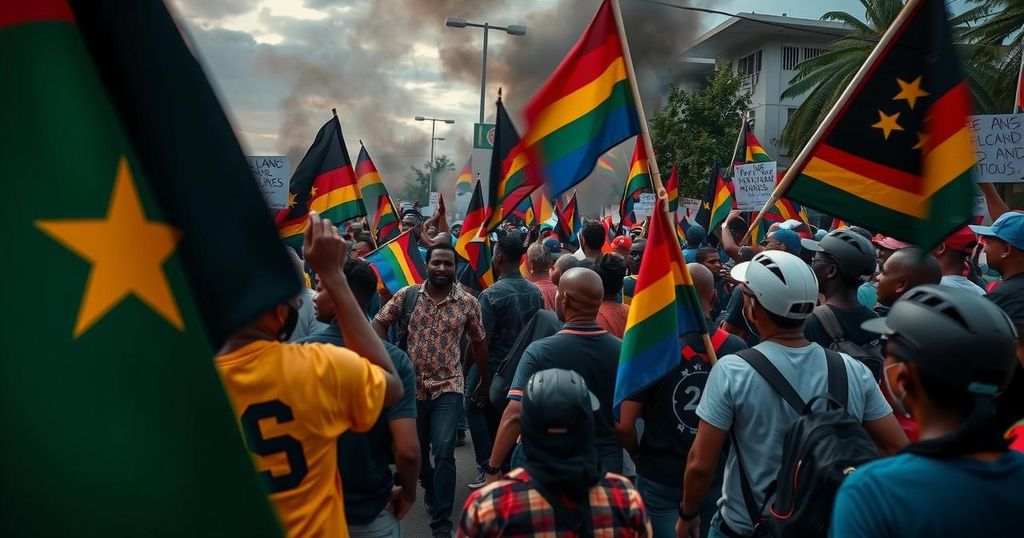Mozambique’s government has imposed a protest ban following weeks of violence post-election, which saw Frelimo declared the winner in a disputed vote. The unrest has resulted in at least 18 fatalities, with officials labeling the protests as acts of terrorism. Access to the internet has been restricted as authorities seek to quell dissent, amid ongoing claims of electoral misconduct by opposition groups. The president is set to step down after two terms, heightening political tensions.
In Mozambique, the government has enacted a ban on protests following a period of escalating violence in the wake of last month’s contested presidential election, which resulted in numerous fatalities and injuries. The Frelimo party, which has maintained governance since 1975, emerged victorious amid allegations of electoral fraud. Protests erupted in Maputo after the election results were announced, leading to serious clashes between demonstrators and law enforcement. As the situation deteriorated, the Interior Minister characterized the ongoing protests as acts of terrorism, emphasizing the need for citizens to work with authorities to restore order and safety in the country. Furthermore, claims have surfaced regarding government efforts to limit internet access to stifle dissent and suppress the organization of further protests. Opposition leaders assert that the electoral process was heavily manipulated, a point denied by government officials. As current President Filipe Nyusi completes his terms, tensions continue to mount in anticipation of future political transitions.
In October 2023, Mozambique held a presidential election that resulted in widespread claims of fraud and misconduct. The Frelimo party, which has been in power for nearly five decades, claimed victory with over 71% of the votes. The subsequent protests, ignited by dissatisfaction with the electoral outcome, have led to violent clashes resulting in at least 18 confirmed deaths and multiple injuries. The government’s response has included labeling the protests as terrorism, further elevating the tensions between the ruling party and opposition groups. Observers have noted restricted media and internet access as measures aimed at controlling public dissent, indicating a continued struggle for democratic expression in Mozambique.
The ban on protests in Mozambique follows significant unrest triggered by allegations of electoral fraud during the recent presidential election. With the government’s use of heavy-handed tactics, including the deployment of soldiers and restrictions on internet access, the situation remains perilous for political dissenters. Calls for cooperation with authorities and accusations against protest organizers suggest a deepening divide between the ruling government and opposition factions, raising concerns over human rights and the future of governance in Mozambique.
Original Source: www.bbc.com






